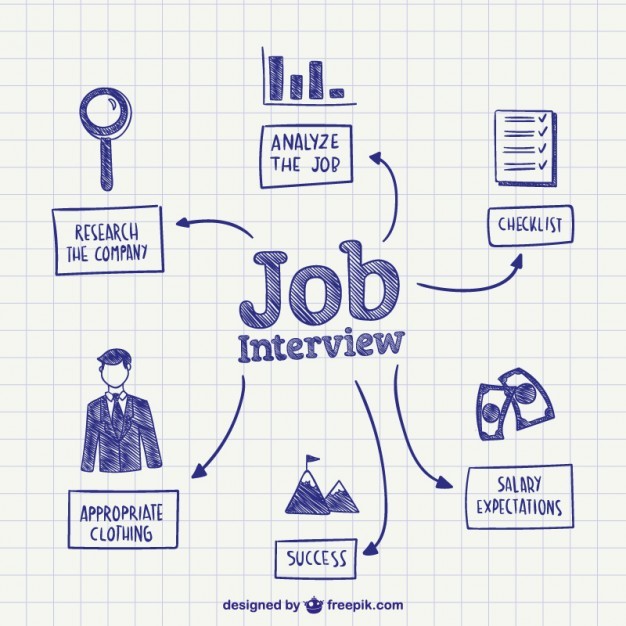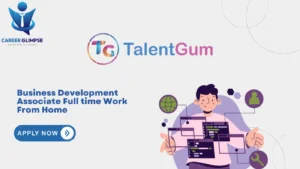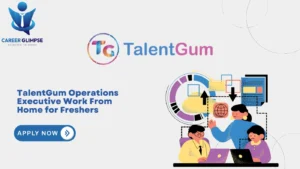The Importance of Interview Preparation
Preparing for an interview is crucial for success in the job market. It allows you to showcase your skills, knowledge, and suitability for the role. However, many candidates overlook the significance of interview preparation, leading to missed opportunities. By investing time and effort into interview preparation, you can differentiate yourself from other candidates and increase your chances of securing your dream job.
First and foremost, interview preparation enables you to gain a deep understanding of the company and the position you are applying for. By researching the company’s values, mission, and culture, you can align your answers with their expectations. Additionally, familiarizing yourself with the job requirements ensures that you can tailor your responses to highlight your relevant skills and experiences.
Common Interview Preparation Mistakes to Avoid
While interview preparation is crucial, it’s equally important to avoid common mistakes that can hinder your chances of success. One common mistake is failing to research the company and the position adequately. Without this knowledge, you may struggle to demonstrate your enthusiasm and fit for the role. Similarly, not understanding the job requirements can result in generic answers that fail to address the specific needs of the position.
Another mistake to avoid is neglecting to create an interview preparation checklist. A checklist helps you stay organized and ensures that you cover all essential aspects of preparation, such as researching the company, practicing interview questions, and gathering necessary documents. Without a checklist, you may overlook crucial steps and feel unprepared on the day of the interview.
Researching the Company and Position
Researching the company and the position you are applying for is a fundamental step in interview preparation. Start by exploring the company’s website, social media presence, and any recent news articles or press releases. This will give you valuable insights into their products or services, company culture, and future goals. Make note of any key information that aligns with your skills and experiences.
Next, delve into the job requirements and description. Highlight the skills, qualifications, and experiences that are essential for the role. This will help you tailor your answers during the interview to show how you meet their expectations. Additionally, research the industry trends and challenges to demonstrate your knowledge and passion for the field.
Understanding the Job Requirements
To ensure a successful interview, it is crucial to have a clear understanding of the job requirements. Analyze the job description and identify the key skills, qualifications, and experiences they are seeking. This will help you align your answers and examples with their expectations.
Once you have identified the requirements, evaluate your own skills and experiences. Identify specific instances where you have demonstrated the desired skills or experiences. By preparing examples that showcase your abilities, you can confidently respond to questions during the interview. This will help you stand out from other candidates and provide concrete evidence of your suitability for the role.
Creating an Interview Preparation Checklist
To stay organized and ensure a thorough interview preparation, it is essential to create a checklist. A checklist serves as a roadmap, guiding you through each step of the preparation process. Here is a comprehensive interview preparation checklist to help you stay on track:
- Research the company’s values, mission, and culture.
- Understand the job requirements and align your answers accordingly.
- Prepare examples that highlight your skills and experiences.
- Practice common interview questions and refine your answers.
- Dress appropriately for the interview, considering the company’s dress code.
- Gather necessary documents, such as your resume, references, and portfolio.
- Research the interview logistics, including the date, time, and location.
- Plan your travel route in advance to ensure punctuality.
- Practice mock interviews and role-playing exercises to boost your confidence.
- Prepare insightful questions to ask the interviewer.
By following this checklist, you can ensure that you cover all the essential aspects of interview preparation and feel confident on the day of the interview.

Preparing Interview Answers and Examples
Preparing interview answers and examples is a critical step in interview preparation. It allows you to articulate your skills, experiences, and achievements effectively. Start by analyzing the job requirements and identifying the key skills they are seeking. Then, brainstorm specific instances where you have demonstrated these skills.
For each example, use the STAR method: Situation, Task, Action, and Result. Describe the situation or challenge you faced, the task or goal you needed to accomplish, the action you took, and the result or outcome. By structuring your answers in this way, you provide a clear and concise response that showcases your abilities.
Practice delivering your answers in a confident and concise manner. Focus on highlighting the impact of your actions and emphasize your ability to overcome challenges. By rehearsing your answers, you will feel more comfortable and prepared during the actual interview.
Practicing Common Interview Questions
Practicing common interview questions is essential for interview success. While you cannot predict every question you will be asked, there are several common questions that frequently arise in interviews. By familiarizing yourself with these questions and preparing thoughtful responses, you can confidently address a variety of topics.
Some common interview questions include:
- Tell me about yourself.
- Why are you interested in this position/company?
- What are your strengths and weaknesses?
- Describe a time when you faced a challenge and how you overcame it.
- How do you handle stress or pressure?
- Give an example of a time when you worked in a team.
Prepare concise and well-thought-out responses for each of these questions. Focus on highlighting your skills, experiences, and achievements that are relevant to the position. Practice delivering your answers in a confident and articulate manner to ensure a strong impression during the interview.
Dressing Appropriately for the Interview
Your appearance plays a significant role in making a positive first impression during an interview. Dressing appropriately demonstrates professionalism and respect for the opportunity. When deciding what to wear, consider the company’s dress code and industry norms.
If the company has a formal dress code, opt for a tailored suit or a conservative dress. Choose neutral colors and avoid excessive accessories or jewelry. For a business casual environment, dress slacks or a skirt paired with a blouse or a collared shirt are appropriate. Avoid wearing jeans, sneakers, or revealing clothing.
Remember, it is better to be slightly overdressed than underdressed. Your attire should reflect your seriousness and professionalism, while still aligning with the company’s culture.
Gathering Necessary Documents and Materials
Gathering the necessary documents and materials in advance is essential for a smooth interview experience. Ensure that you have the following items ready:
- Multiple copies of your resume, printed on high-quality paper.
- References or letters of recommendation, if applicable.
- A portfolio showcasing your work or relevant projects.
- Certifications or licenses, if required for the position.
- A notebook and pen to take notes during the interview.
Organize these documents neatly in a professional folder or portfolio. Check them for any errors or outdated information to ensure that you present yourself in the best possible light.
Tips for Effective Interview Preparation for Freshers
Interview preparation can be particularly challenging for freshers who have limited work experience. However, by focusing on your strengths, accomplishments, and transferable skills, you can still impress the interviewer. Here are some tips for effective interview preparation for freshers:
- Emphasize your education: Highlight any relevant coursework, projects, or internships you have completed during your studies.
- Showcase your extracurricular activities: If you were involved in clubs, volunteer work, or leadership roles, demonstrate how these experiences have developed your skills and character.
- Discuss transferable skills: Even if you lack direct work experience, you may possess transferable skills such as communication, teamwork, problem-solving, or adaptability. Provide examples of how you have utilized these skills in different contexts.
- Prepare for behavioral questions: Behavioral questions assess your past behavior and how you handle specific situations. Prepare examples that demonstrate your abilities and highlight your potential.
Remember, as a fresher, employers understand that you may not have extensive work experience. Focus on showcasing your potential, enthusiasm, and willingness to learn and grow.

Interview Preparation in English: Tips for Non-Native Speakers
For non-native English speakers, interview preparation can be more challenging due to language barriers. However, with the right approach and practice, you can overcome these challenges and effectively communicate your skills and experiences. Here are some tips for interview preparation in English:
- Improve your language skills: Dedicate time to improving your English language skills, particularly in areas such as vocabulary, pronunciation, and grammar. Use language learning resources, engage in conversations with native speakers, and practice reading and writing in English.
- Familiarize yourself with common interview questions: Become familiar with common interview questions and practice formulating your answers in English. Focus on clarity, conciseness, and coherence in your responses.
- Practice mock interviews: Engage in mock interviews with a native English speaker or a language tutor. This will help you become more comfortable with the interview format and gain feedback on your language skills.
- Listen to English podcasts or watch interviews: Expose yourself to natural English conversations by listening to podcasts or watching interviews. This will help you grasp the nuances of the language and improve your comprehension skills.
Remember, interviewers understand that English may not be your first language. Focus on effectively communicating your ideas, showcasing your skills, and demonstrating your willingness to learn and adapt.
Mock Interviews and Role-Playing Exercises
Mock interviews and role-playing exercises are invaluable tools for interview preparation. They allow you to simulate the interview experience and practice your responses in a safe and supportive environment. Here’s how you can make the most of mock interviews and role-playing exercises:
- Find a partner: Seek out a friend, family member, or mentor who can act as an interviewer. Ensure that they are familiar with the types of questions typically asked in interviews.
- Set up a mock interview: Create a realistic interview setting, including appropriate attire and a quiet space. Treat the mock interview as if it were a real one.
- Practice a variety of questions: Prepare a list of common interview questions and have your partner ask them during the mock interview. Practice delivering your answers confidently and concisely.
- Seek feedback: After the mock interview, ask your partner for constructive feedback. Focus on areas such as body language, clarity of responses, and overall confidence. Use this feedback to improve your interview skills.
By engaging in mock interviews and role-playing exercises, you can gain confidence, refine your answers, and identify areas that need improvement. This will ensure that you are well-prepared and ready to tackle any question during the actual interview.
Managing Interview Nerves and Anxiety
It is natural to feel nervous before an interview. However, managing your nerves and anxiety is crucial to perform your best. Here are some strategies to help you cope with interview nerves:
- Prepare thoroughly: The more prepared you are, the more confident you will feel. Review your interview preparation checklist, practice your responses, and conduct research on the company and position. This will boost your self-assurance and reduce anxiety.
- Practice relaxation techniques: Prior to the interview, practice deep breathing exercises, meditation, or visualization techniques to calm your mind and body. These techniques can help reduce anxiety and promote a sense of calmness.
- Positive self-talk: Replace negative thoughts with positive affirmations. Remind yourself of your strengths, accomplishments, and the value you can bring to the position. Visualize a successful interview and focus on the positive outcomes.
- Seek support: Share your feelings with a trusted friend or family member. They can provide encouragement and help alleviate your anxiety. Additionally, consider seeking guidance from a career coach or mentor who can offer valuable advice and support.
Remember, interview nerves are normal, and interviewers understand that candidates may feel anxious. By implementing these strategies, you can effectively manage your nerves and perform at your best during the interview.
Interview Preparation Questions to Ask the Interviewer
Asking thoughtful questions during the interview not only demonstrates your interest in the company but also provides an opportunity to assess if the role is the right fit for you. Here are some interview preparation questions to ask the interviewer:
- Can you describe the company culture and values?
- What are the key challenges or opportunities the company is currently facing?
- How does the company support professional development and growth?
- Can you provide more information about the day-to-day responsibilities of the role?
- What is the management style within the company?
- How does the company measure success for this position?
- What is the next step in the interview process?
These questions show your enthusiasm, curiosity, and desire to learn more about the company and the role. Additionally, they provide valuable insights into the company’s expectations and help you make an informed decision if an offer is extended.
The Day Before the Interview: Final Preparations
The day before the interview is crucial for finalizing your preparations and ensuring a smooth interview day. Here are some essential tasks to complete:
- Review your interview preparation checklist: Ensure that you have covered all the necessary steps and have not missed anything.
- Confirm the interview logistics: Double-check the interview date, time, and location. Plan your travel route and estimate the time needed to get there. Consider any potential traffic or delays.
- Select your interview outfit: Choose an appropriate outfit based on the company’s dress code and industry norms. Ensure that your attire is clean, ironed, and ready to wear.
- Pack your interview materials: Gather all the necessary documents and materials, such as your resume, references, portfolio, and notebook. Place them in a professional folder or bag.
- Practice relaxation techniques: Engage in relaxation techniques, such as deep breathing exercises or meditation, to calm your nerves and promote a sense of tranquility.
- Get a good night’s sleep: Ensure that you have a restful night’s sleep to feel refreshed and alert on the day of the interview.
By completing these final preparations, you can enter the interview day feeling confident, organized, and well-prepared.

Interview Day: Dos and Don’ts
On the day of the interview, it is essential to maintain a professional demeanor and make a positive impression. Here are some dos and don’ts to keep in mind:
Dos:
- Dress professionally.
- Research the company.
- Practice common questions.
- Bring multiple copies of your resume.
- Maintain eye contact.
- Listen actively.
- Express gratitude.
- Ask thoughtful questions.
- Follow up with a thank-you email.
- Stay confident and positive.
Don’ts:
- Arrive late.
- Speak negatively about past experiences.
- Use excessive jargon.
- Interrupt the interviewer.
- Overshare personal details.
- Chew gum or use your phone.
- Be overly casual.
- Fidget or slouch.
- Forget to follow up.
- Panic if faced with a challenging question.
After the interview: Follow-up and reflection
Follow-up:
- Send a thank-you email within 24 hours.
- Express appreciation for the opportunity.
- Reiterate your interest in the position.
- Mention a specific point from the interview.
- Attach any additional materials if relevant.
Reflection:
- Evaluate your performance objectively.
- Identify areas of strength and improvement.
- Consider how well you connected with the team.
- Reflect on the company culture fit.
- Plan for potential follow-up questions.
- Assess overall satisfaction with the interview.
- Adjust preparation strategies for future interviews.
Conclusion
In conclusion, interview preparation is the key to unlocking success in the job market. It’s not just about showcasing skills but understanding the company, avoiding common mistakes, and presenting yourself confidently. Create a checklist, practice answers, and manage nerves. Remember, thorough preparation distinguishes you from others, increasing your chances of landing your dream job. So, invest time and effort, and go into your interview with confidence and readiness!




